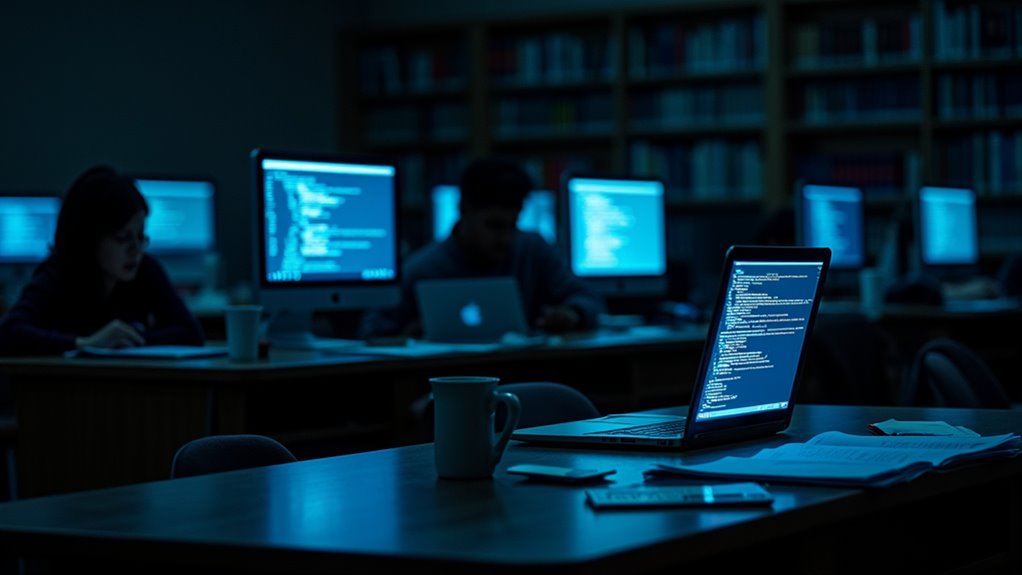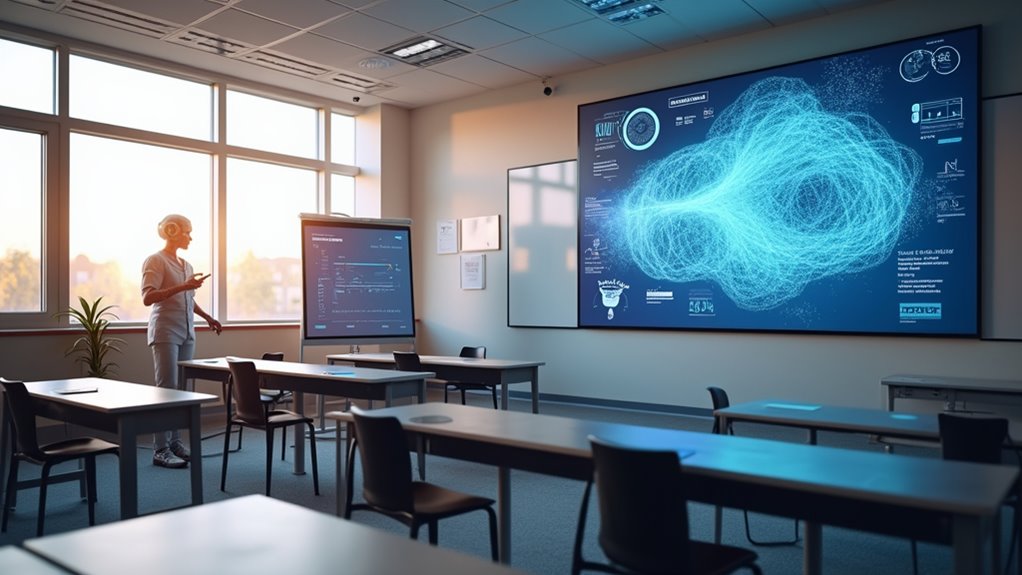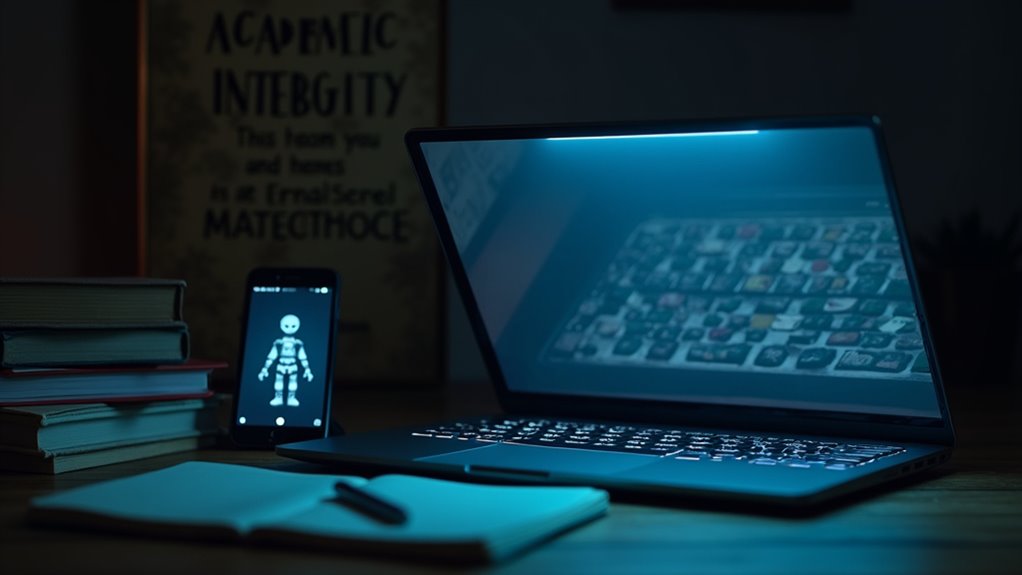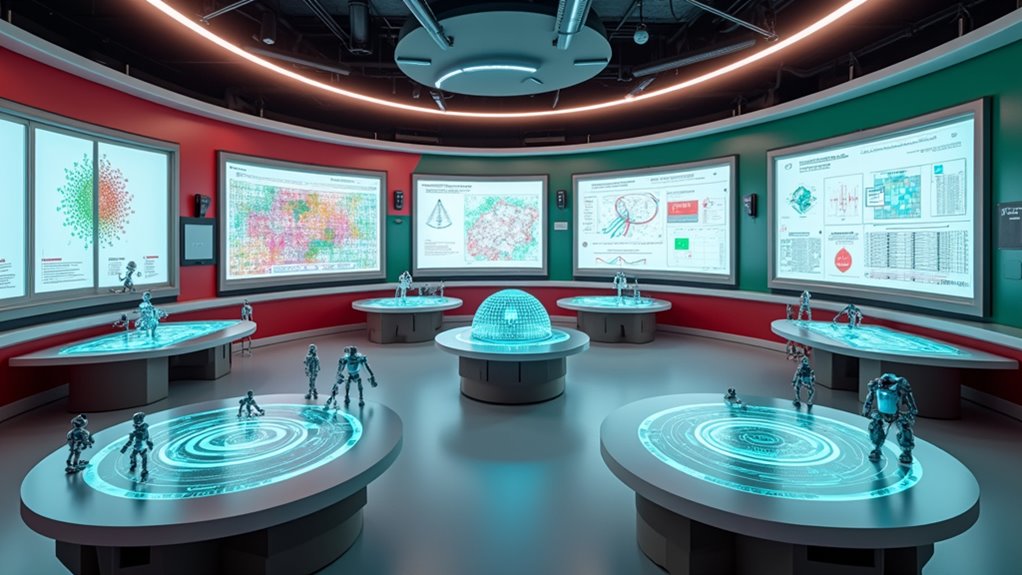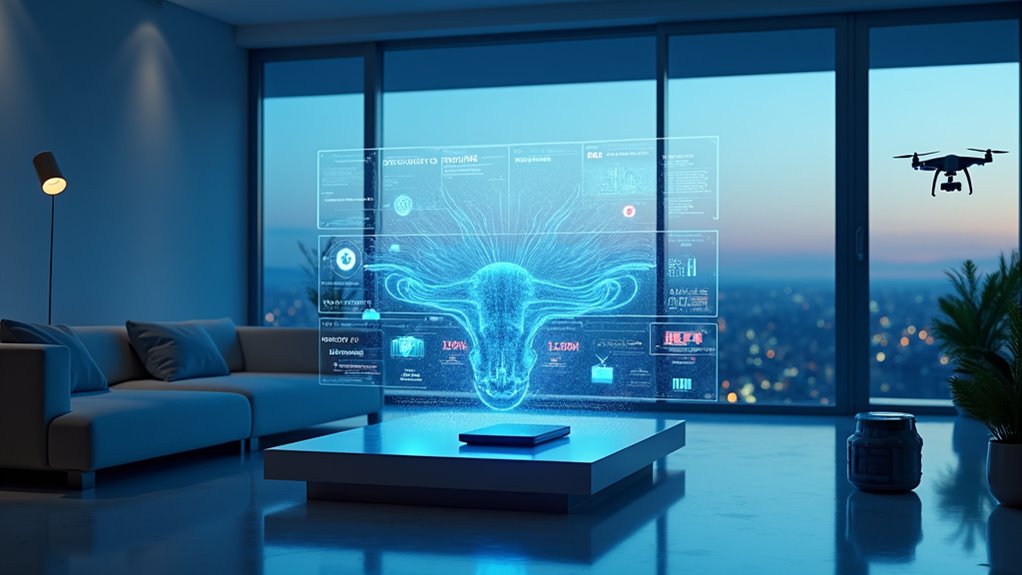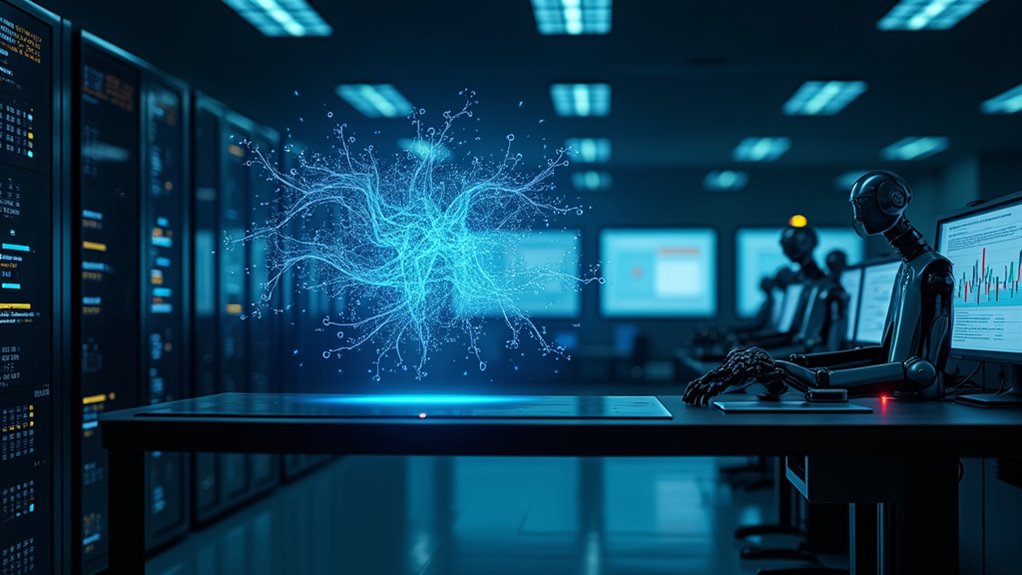While Loyola University has long prided itself on academic excellence, a troubling new trend has emerged on campus. The Honor Council reports a staggering 64% of academic integrity violations now involve artificial intelligence – and nobody’s laughing about it.
The numbers tell a story that’s hard to ignore. Last year’s 24% increase in AI-related violations wasn’t a fluke. It’s part of a pattern that’s been building since 2022-23, when AI was involved in just 27% of cases. Now, three-quarters of students know someone who’s used AI to cheat. So much for keeping secrets.
ChatGPT has become the go-to study buddy for 89% of students doing homework. With 400 million weekly users globally, it’s like having a know-it-all friend who never sleeps – and never sleeps. The problem? Some students can’t tell the difference between collaboration and cheating. These AI systems generate responses based on statistical likelihood rather than true understanding.
Educators aren’t taking this lying down. A whopping 68% now use AI detection tools, desperately trying to catch up with tech-savvy students. It’s like a digital arms race, with universities scrambling to update their honor codes and deploy fancy algorithms. Mark Lee and the Honor Council are focusing heavily on student education about AI consequences. Good luck with that.
The numbers are getting worse, not better. Student discipline rates for AI-related plagiarism jumped from 48% to 64% in just one year. The UK leads the pack in catching AI-generated content – apparently, British professors are particularly good at spotting robot writing. The rise in violations highlights how poor data governance can lead to systematic issues in academic integrity.
But there’s an uglier side to this story. These AI tools come with their own baggage – built-in biases that reflect society’s inequalities. The data used to train them isn’t exactly a model of fairness and inclusion. It’s like having a biased teaching assistant who grades papers based on outdated prejudices.
The situation at Loyola isn’t unique. Universities everywhere are grappling with this digital demon. As AI transforms education faster than anyone expected, one thing’s clear: the old rules of academic integrity need a serious upgrade. And fast.
